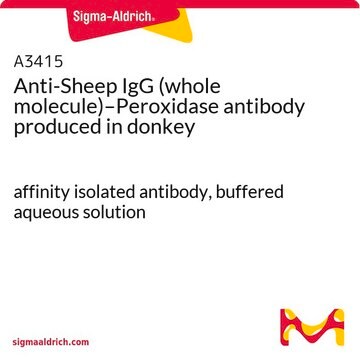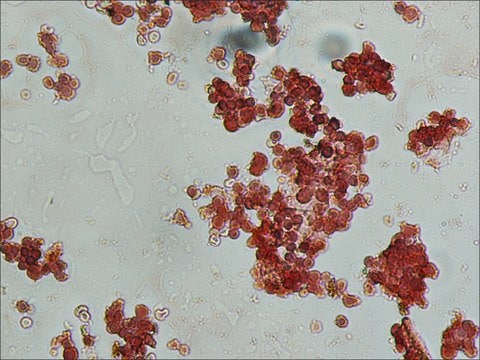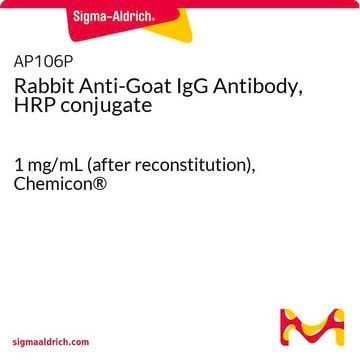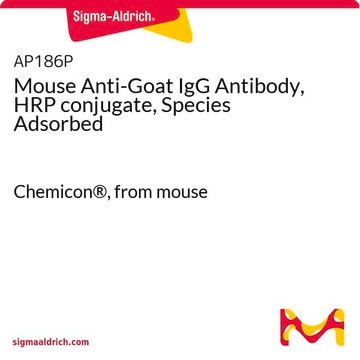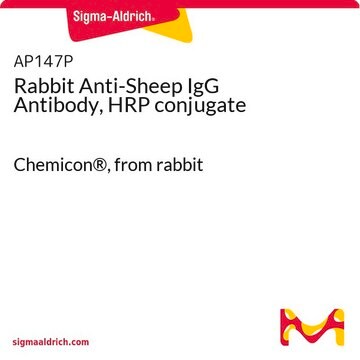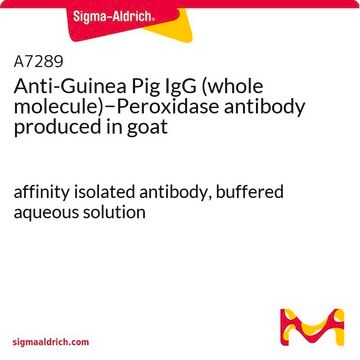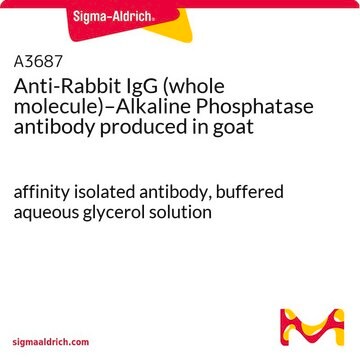A9452
Anti-Goat/Sheep IgG−Peroxidase antibody, Mouse monoclonal
clone GT-34, purified from hybridoma cell culture
Synonym(s):
Monoclonal Anti-Goat/Sheep IgG
About This Item
Recommended Products
biological source
mouse
Quality Level
conjugate
peroxidase conjugate
antibody form
purified from hybridoma cell culture
antibody product type
secondary antibodies
clone
GT-34, monoclonal
form
lyophilized powder
species reactivity
sheep, goat, bovine
should not react with
rat, canine, mouse, rabbit, guinea pig, chicken, horse, pig, feline, human
packaging
vial of 0.5 mL
technique(s)
direct ELISA: 1:30,000
dot blot: 1:160,000 (chemiluminescent)
immunohistochemistry (formalin-fixed, paraffin-embedded sections): 1:100
isotype
IgG1
storage temp.
2-8°C
target post-translational modification
unmodified
Looking for similar products? Visit Product Comparison Guide
General description
Mouse monoclonal anti-goat/sheep IgG-peroxidase antibody shows strong cross-reactivity with sheep IgG and cross-reacts with bovine IgG. No cross-reaction of the unconjugated monoclonal antibody is observed with human serum and tissue components. Moreover, the antibody does not react with the following species: guinea pig, rat, mouse, rabbit, horse, dog, chicken, pig and cat.
Application
Biochem/physiol Actions
Physical form
Preparation Note
Disclaimer
Not finding the right product?
Try our Product Selector Tool.
Signal Word
Warning
Hazard Statements
Precautionary Statements
Hazard Classifications
Skin Sens. 1
Storage Class Code
13 - Non Combustible Solids
WGK
WGK 2
Flash Point(F)
Not applicable
Flash Point(C)
Not applicable
Personal Protective Equipment
Certificates of Analysis (COA)
Search for Certificates of Analysis (COA) by entering the products Lot/Batch Number. Lot and Batch Numbers can be found on a product’s label following the words ‘Lot’ or ‘Batch’.
Already Own This Product?
Find documentation for the products that you have recently purchased in the Document Library.
Customers Also Viewed
Our team of scientists has experience in all areas of research including Life Science, Material Science, Chemical Synthesis, Chromatography, Analytical and many others.
Contact Technical Service

